Introduction: Understanding the Raccoon Problem
Raccoons are notorious for wreaking havoc in gardens, causing damage to plants, vegetables, and fruits. These clever creatures can quickly become a nuisance, but fear not! In this article, we will explore effective strategies to keep raccoons out of your garden and protect your hard work.

1. Identify Common Raccoon Behavior
Before we dive into prevention methods, it's essential to understand raccoon behavior. Raccoons are primarily nocturnal, so they are most active during the night. They are highly intelligent and agile, capable of opening gates, climbing fences, and digging under barriers.

2. Secure Your Garbage Bins
Raccoons are attracted to food sources, and unsecured garbage bins are an open invitation. Invest in sturdy, animal-proof containers with secure lids to prevent raccoons from rummaging through your trash. Eliminating this food source will deter them from venturing into your garden.

3. Seal Entry Points
Raccoons can squeeze through small openings. Inspect your garden for any potential entry points such as gaps in fences, broken boards, or loose soil near foundations. Seal these openings with sturdy materials to prevent raccoons from gaining access.

4. Install Motion-Activated Lights and Sprinklers
Raccoons dislike bright lights and sudden bursts of water. Install motion-activated lights and sprinkler systems in your garden to startle them away. The unexpected activation will deter raccoons from returning to your garden.
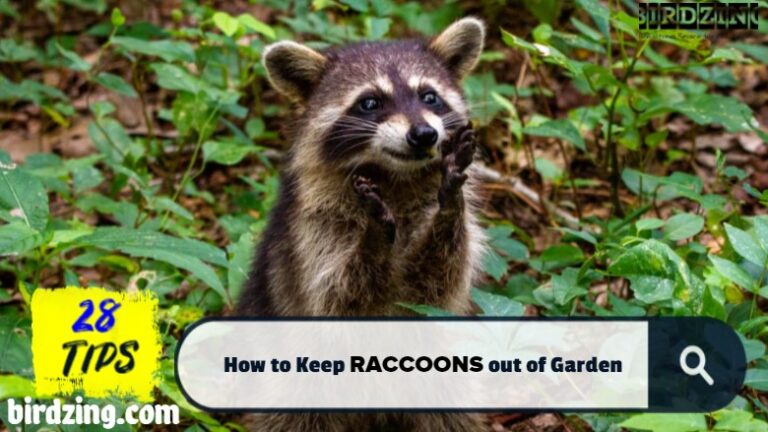
5. Utilize Natural Deterrents
There are several natural deterrents that repel raccoons. Sprinkle cayenne pepper or garlic powder around your garden, as raccoons dislike the strong smell. Alternatively, soak rags in ammonia and place them strategically to deter raccoons.

6. Build a Fence
A sturdy fence can be an effective barrier against raccoons. Opt for a fence at least four feet tall, with the bottom buried at least six inches into the ground. Consider adding an outward-facing overhang to prevent raccoons from climbing over.
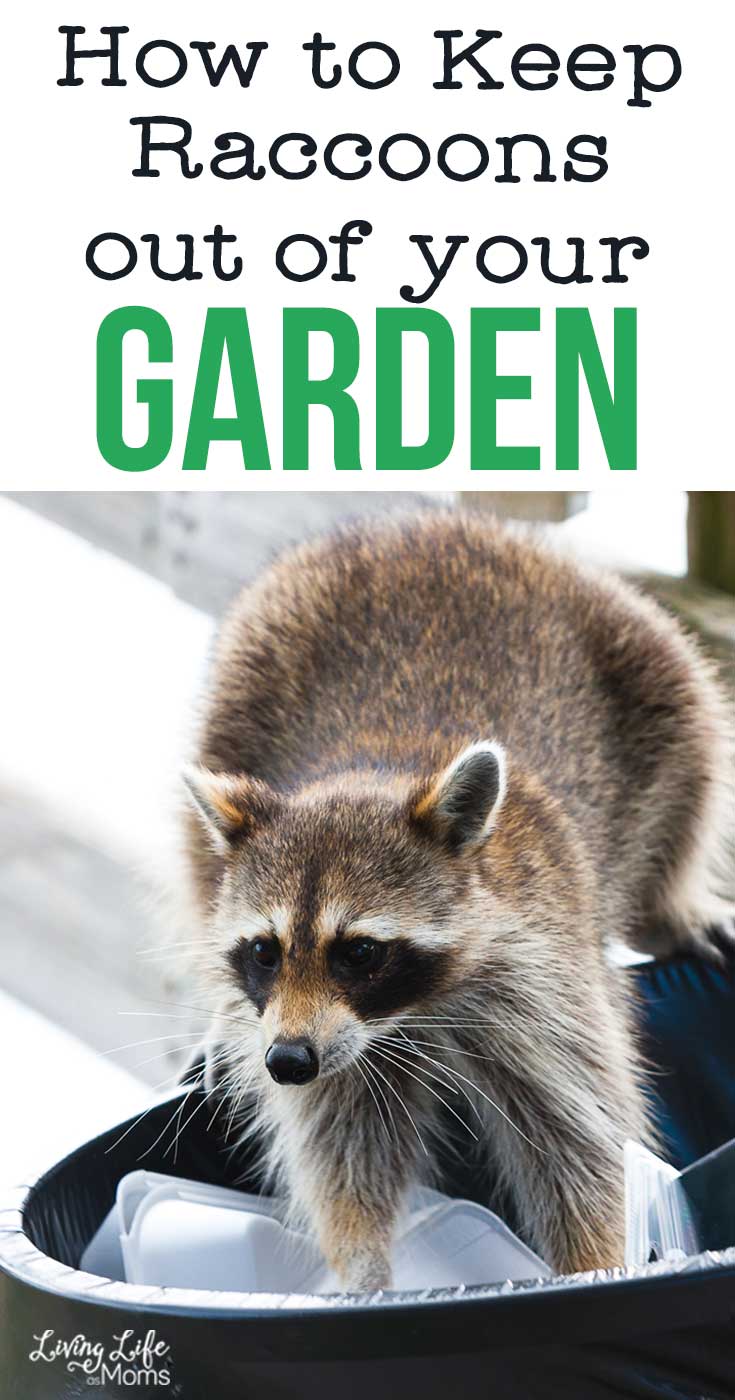
7. Remove Potential Food Sources
Raccoons are attracted to gardens because of the available food sources. Harvest ripe fruits and vegetables promptly, and remove fallen fruits from the ground. Additionally, consider using bird feeders that are raccoon-resistant.

8. Implement Motion-Activated Alarms
Install motion-activated alarms in your garden to startle raccoons with loud noises. These alarms can be triggered by their movement, deterring them from returning to your garden. Ensure the alarm's volume is set at a level that is effective but not disturbing to neighbors.

9. Use Repellent Sprays
Raccoon repellent sprays can be an effective deterrent. Look for commercially available sprays that are specifically designed to repel raccoons. Apply them to vulnerable areas or plants that raccoons frequently target.
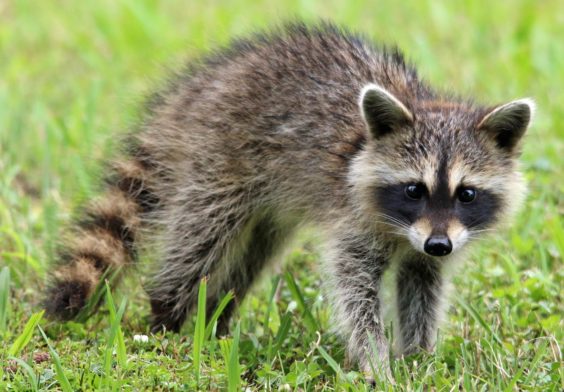
10. Utilize Predator Urine
Raccoons are wary of predators, and the smell of predator urine can deter them from entering your garden. Look for commercially available predator urine repellents and use them strategically around your garden.
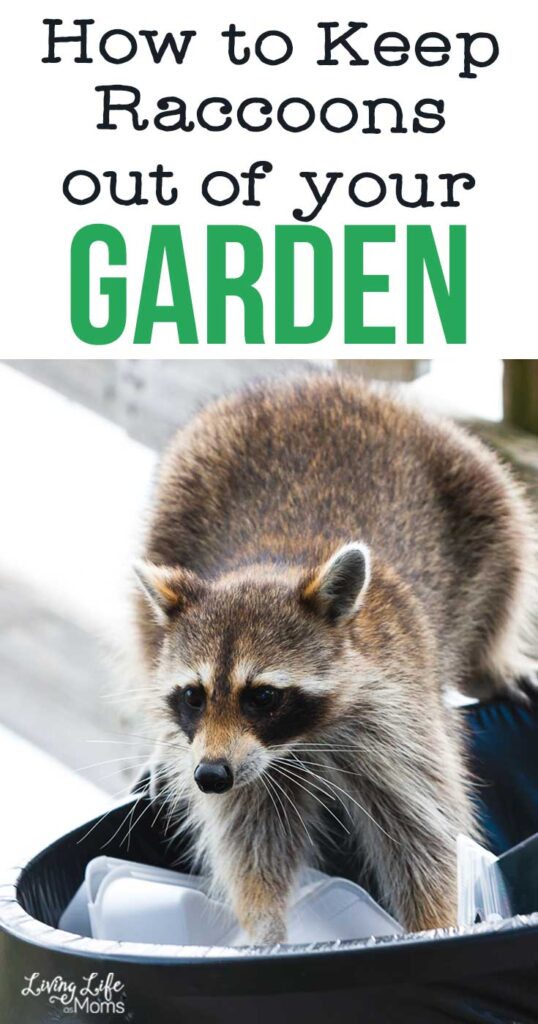
11. Trim Overhanging Branches
Raccoons are excellent climbers and can access your garden by using overhanging branches. Trim any branches that provide easy access to your garden to make it more challenging for raccoons to enter.
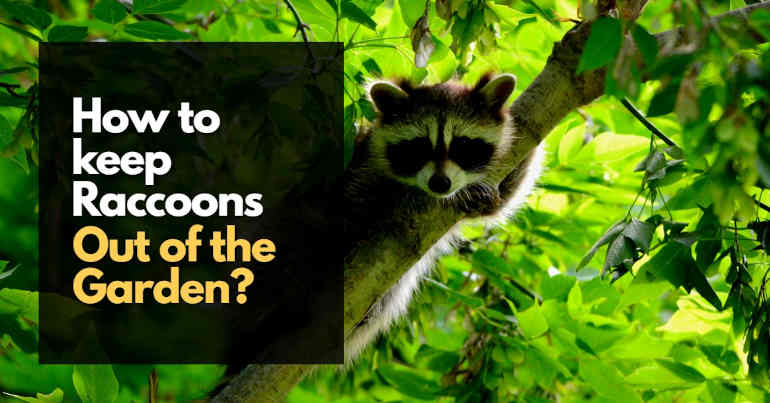
12. Implement Noise and Light Disturbances
Raccoons are sensitive to noise and light disturbances. Consider leaving a radio or motion-activated lights on in your garden during the night to deter raccoons. The unfamiliar sounds and lights will make them feel uneasy.
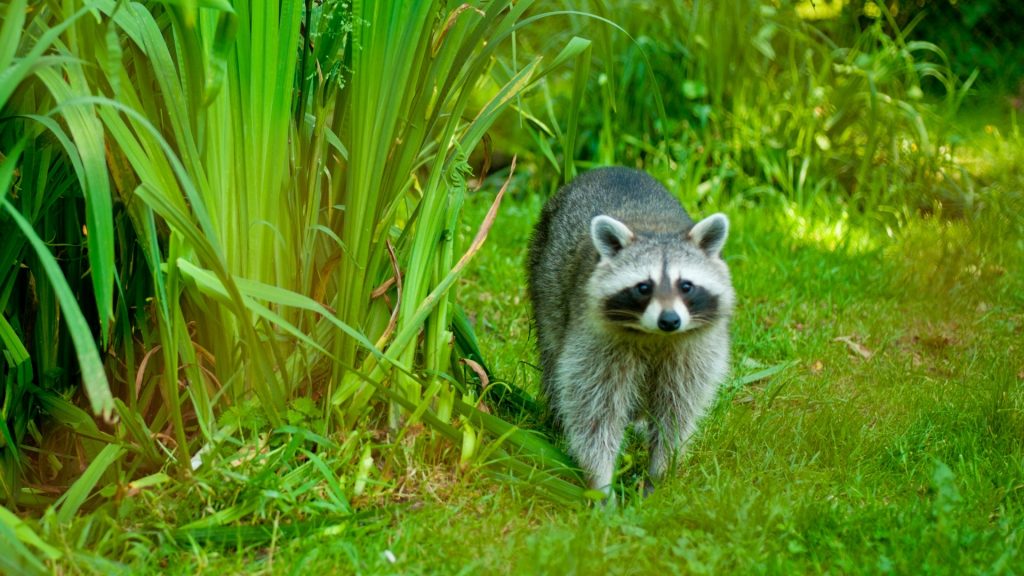
13. Create Physical Barriers
Physical barriers can be an effective way to keep raccoons out of specific areas. Use fences, chicken wire, or netting to protect vulnerable plants or sections of your garden that raccoons frequently target.

14. Consider Motion-Activated Cameras
Install motion-activated cameras in your garden to monitor raccoon activity. These cameras can help you identify patterns and determine the most vulnerable areas. Having visual evidence can also be useful when seeking professional assistance.

15. Implement Taste Deterrents
Raccoons have sensitive taste buds, and certain tastes can deter them from damaging your plants. Sprinkle hot pepper flakes or a mixture of powdered mustard and water on vulnerable plants to deter raccoons with their strong taste.

16. Secure Compost Bins
Raccoons are attracted to compost bins due to the presence of food scraps. Ensure your compost bins are securely closed and cannot be easily accessed by raccoons. Consider using heavy lids and securing them with bungee cords.

17. Remove Potential Shelter Sites
Raccoons seek shelter in dark and secluded areas. Remove potential shelter sites such as woodpiles, old sheds, or abandoned structures near your garden. By eliminating these hiding spots, you make your garden less attractive to raccoons.

18. Install Electric Fencing
If other methods fail to deter raccoons, consider installing electric fencing around your garden. Electric fences deliver a harmless shock, teaching raccoons to stay away. However, ensure that electric fencing is legal in your area and follow all safety guidelines.

19. Seek Professional Assistance
If your raccoon problem persists despite your best efforts, it may be time to seek professional assistance. Wildlife control experts can provide additional strategies, such as live trapping and relocation, to effectively deal with raccoon infestations.
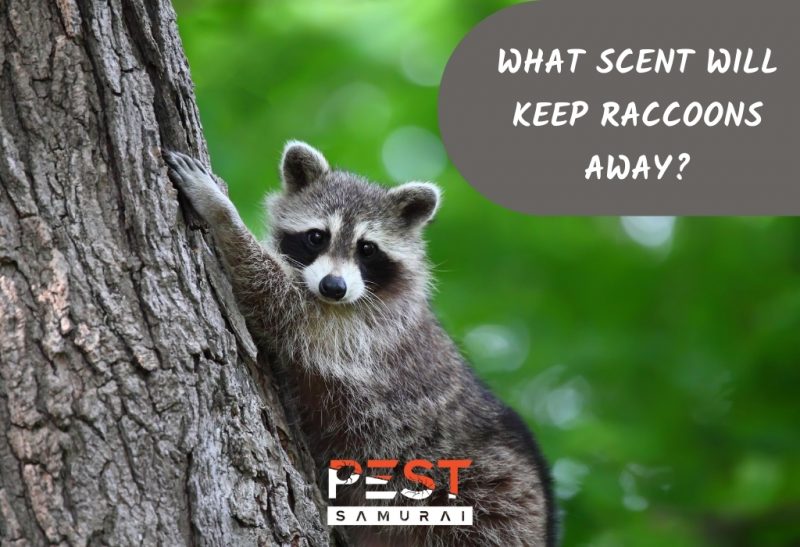
20. Conclusion
By implementing these strategies, you can protect your garden from raccoon invasions. Remember to combine multiple methods for the best results and adapt your approach based on the behavior and persistence of raccoons in your area. With persistence and the right preventive measures, your garden can thrive without unwanted raccoon visitors.